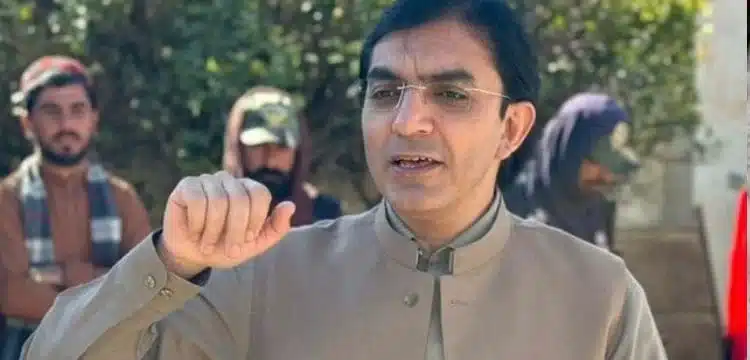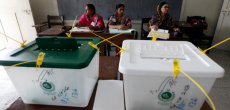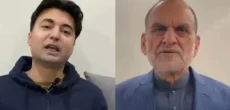[vc_row][vc_column][vc_column_text dp_text_size=”size-4″]Pakistan’s former legislator and leader of the National Democratic Movement, Mohsin Dawar, sustained injuries in a gun attack by unidentified assailants in North Waziristan. The incident occurred as Dawar, currently running for elections in the NA-40 constituency of the district, was subsequently transported to the hospital for medical attention.
Dawar, a figure known for controversy, asserted that there were deliberate efforts to manipulate the election results. This unfortunate event unfolded just a month after another attack targeted his convoy in the tribal districts of Khyber Pakhtunkhwa.
Read more: Gunfire Near AC Judge Bashir Vehicle In Rawalpindi
The 39-year-old politician’s image, covered in blood, circulated widely, depicting his party members carrying him to the hospital. This incident adds to the series of security concerns surrounding Dawar, raising questions about the safety and integrity of the electoral process.
The attack on Dawar highlights the persistent challenges faced by political figures in Pakistan, particularly those who advocate for change or oppose established norms. In this context, Dawar’s repeated encounters with violence underscore the risks associated with his political stance and activism.
North Waziristan, the site of the recent attack, has been a region marked by historical complexities and security issues. The incident involving Dawar draws attention to the broader challenges in ensuring a secure environment for political activities, especially during electoral campaigns.
The politician’s claim of attempted election interference echoes a recurring theme in Pakistani politics, where allegations of rigging and manipulation often accompany electoral processes. Such accusations not only contribute to a sense of mistrust but also raise concerns about the overall fairness of the democratic system.
The visual impact of Dawar, covered in blood and being rushed to the hospital, resonates emotionally with the public, sparking discussions about the vulnerability of political figures in the face of violence. The power dynamics and conflicts within the region are reflected in these targeted attacks, emphasizing the need for enhanced security measures to safeguard the democratic process.
This incident serves as a grim reminder of the broader challenges faced by politicians in volatile regions, where the intersection of political activism and security risks creates a delicate balance. The recurring attacks on Dawar point to a larger issue of ensuring the safety of individuals participating in the democratic process and the need for a comprehensive approach to address these security concerns.
In conclusion, Mohsin Dawar’s injury in the recent gun attack underscores the complex landscape of Pakistani politics, where security threats and allegations of election interference continue to shape the narrative. The incident prompts a reflection on the broader implications for political activism, electoral integrity, and the safety of those involved in shaping the country’s political landscape.[/vc_column_text][/vc_column][/vc_row]











